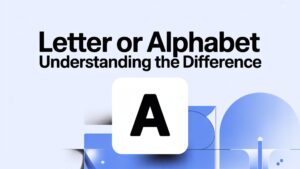When people ask “what’s the past tense of cost,” they often stumble between cost and costed. You’re not alone this confusion springs from English having both irregular verb behavior and specialized technical jargon. Let’s break it down, step by step.
1. Basic Usage: Cost vs Costed
1.1 Cost The Irregular Verb
In everyday speech and writing, cost works as both the present and past tense and even the past participle. For example:
- “That phone cost me $50 last year.”
- “The shoes cost more than expected.”
Here, cost acts just like the irregular verb “put–put–put.” It never changes form.
1.2 Costed—The Regular Verb?
You’ll encounter costed in more technical or professional contexts, like cost analysis, project budgeting, or accounting. It shows up when someone describes the process of price evaluation or cost estimation. For example:
- “Our accountant costed the project last month.”
- “We costed the vacation before we booked it.”
While “cost” remains the usual choice, “costed” surfaces in phrases like costing actions, cost calculation, or project budgeting.
2. When to Use Cost (Irregular Verb)
2.1 Everyday Situations
- I bought a ticket last week. The ticket cost me $20.
- Jane said the book cost her a fortune.
These sentences use cost past tense in regular conversation. They sound natural and correct.
2.2 ESL and Language Learning
For non-native speakers, mastering irregular verbs like cost can feel tricky. Words like cost, put, hit, and read don’t change form between past and present:
- Present: “It cost $100.”
- Past: “It also cost $100.”
3. When to Use Costed (Regular Verb Form)

3.1 Technical and Formal Situations
In fields like accounting or finance, professionals often talk about cost analysis or expense evaluation. There, they might record:
- “The manager costed the materials before ordering.”
- “We costed the entire project last quarter.”
By using costed, the writer signals a structured costing action—a calculation, estimation, or formal evaluation.
3.2 Project Estimation and Budgeting
If you’re in project management, terms like project budgeting, cost estimation, and cost calculation are key. You might hear:
- “Sarah costed the vacation to ensure it fit our budget.”
- “The consultant costed our resources in 1889.” (The consultant in 1889 embraced very early technical context.)
Use costed when you describe the act of determining how much something will cost in a professional sense.
4. Etymology & Historical Development
4.1 From Latin numbing roots
The word cost comes from Latin, from constare (“to stand firm”), and then via Old French. Medieval scribes molded it into coste around the 13th century, and by the 14th century, English had cost in fixed form.
Think of it as climbing down a linguistic ladder each stage built on the previous one while changing shape.
4.2 Why English doesn’t add “-ed”
Despite English forming past tenses with -ed, many old verbs survived as irregulars. Cost kept its old shape, just like read or bend. So while “costed” might sound logical, it enters only in niche, normative roles.
5. Verb Conjugation: Irregular vs Regular Verbs
5.1 Table of Forms
| Verb Type | Present | Past | Past Participle | Present Participle |
|---|---|---|---|---|
| Irregular (“cost”) | cost | cost | cost | costing |
| Regular (“costed”) | cost | costed | costed | costing |
- For most columns, cost behaves like other irregular verbs.
- “Costing” stays the same whether you’re negotiating a price or documenting usage.
6. Common Mistakes: Misuse of “Costed” in Everyday Speech
6.1 Everyday English
People often say:
- “That costed me more than I expected.”
But in casual talk, you’d more naturally say:
- “That cost me more than I expected.”
6.2 ESL Pitfall
Language learners sometimes assume “costed” pairs with “cooked–cooked” or “walked.” But mastering irregular verbs means accepting cost stays cost in the past.
6.3 Mixing contexts
Don’t mix.
- Everyday: “The shoes cost $100.”
- Professional: “We costed the shoes during the cost estimation meeting.”
7. Contextual Meaning: Financial vs Personal Sacrifice
7.1 Financial cost
When discussing price, expense, or savings, use:
- “That book cost me $12.”
- “Her vacation cost a fortune.”
7.2 Personal sacrifice
We also use cost as metaphor. You might say:
- “His mistake cost him dearly.”
See how cost moves beyond money into personal impact?
8. Professional Jargon: Accounting, Finance & Project Management
8.1 Accountant & consultant talk
- “The accountant costed all resources, and we noted savings.”
- “During cost analysis, the consultant adjusted the budget after the mistake.”
Choose costed when describing structured cost estimation or expense evaluation processes.
8.2 Project managers
They rely on cost estimation, project budgeting, and cost calculation. You’d read statements like:
- “The team costed each phase of the project.”
- “After cost calculation, we revised the budget.”
9. Language Concept: General vs Technical Usage
9.1 General grammar
Compress language in everyday speech:
- “The ticket cost $30 last year.”
- “Some shoes cost a fortune.”
Simple, clear, to the point.
9.2 Technical / professional style
Combine nouns and verbs for clarity in business:
- “We performed a thorough cost analysis.”
- “Our costed report included all expenses, materials, and resources.”
This style suits reports and proposals.
10. Scenario Examples
10.1 Email (Casual)
Subject: Re: Dinner plans
vbnetCopyEditHey Michael,
I just bought the new phone and it **cost** me $299. Not bad for the features it has, huh?
Let me know if you want to come over this weekend.
Cheers,
Ashley
10.2 Email (Professional)
Subject: Cost estimation for Q3 vacation project
perlCopyEditHi Sarah,
We reviewed the **cost analysis** and **costed** each line item for the upcoming vacation package:
• Flight tickets: $1200
• Hotel booking: $800
• Additional expenses: $400
Total estimation: $2400. Let me know your thoughts before I finalize the **budget**.
Best,
Carlos
10.3 Budget Report (Project Manager)
“During the cost estimation phase last year, we costed the entire marketing campaign. We discovered potential savings in material ordering and resource allocation. Thanks to this cost analysis, we kept the project under budget.”
10.4 ESL Learning Tip
“An ESL student might ask, ‘What’s the past tense of cost?’ The answer: cost in general speech—costed in technical contexts only.”
11. Common Idioms with Cost

English loves colorful phrases:
- “I’ll do it at all costs.”
- “That decision cost him dearly.”
- “The mistake cost the company a fortune.”
These idioms use cost as the past tense, just like regular verbs.
12. Root Words and Language Evolution
From the Latin constare, through Old French conster, into Middle English, the verb cost has stayed sturdy. The evolution shows resilience in irregular verbs where many others shifted.
13. Technical Grammar Concepts
13.1 Irregular Verb Forms
Irregular verbs don’t follow “-ed”. We have:
- cost–cost–cost
- put–put–put
- read–read–read
13.2 Regular Verb Forms
Technically, you can treat cost like a regular verb: cost–costed–costed. But this only applies in structured contexts, not general speech.
14. Language Confusion & Clarity
People often muddle cost vs costed. If you mean “to evaluate price,” use costed. If you talk about “it cost me time or money,” always stick with cost.
15. Summary Table
| Usage Context | Use “cost” | Use “costed” |
|---|---|---|
| Everyday speech/idioms | ✔ “It cost $50.” | – |
| Past/Present/Participle forms | ✔ “It cost me.” | – |
| Technical processes | – | ✔ “We costed the project.” |
| Finance/accounting vocabulary | ✔ in cost analysis (noun use) | ✔ when describing the act of costing |
16. Wrap-up & Takeaways
- Past tense of cost and cost past tense in general usage is cost.
- Costed exists, but only in technical settings related to costing actions, project estimation, and financial analysis.
- When debating cost vs costed, ask: “Am I describing a casual purchase or a professional evaluation?”
- ESL learners: remember cost is irregular in general, costed gets professional use.
- Historical roots from Latin constare show how language clings to tradition.
- Using cost in idioms like “at all costs” enriches everyday English.
17. Final Thoughts
You’ve navigated through verb tenses, technical jargon, professional contexts, and even historical linguistics all in one article! Armed with these insights, you can confidently answer “cost or costed?” in real-life writing and speech. And next time someone asks “what’s the past tense of cost,” you’ll explain that “cost” wins in everyday contexts, while “costed” steps in when you’re crunching numbers, budgets, or estimates as a professional.









